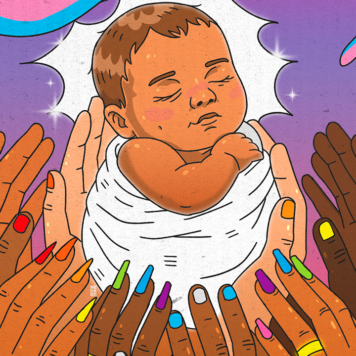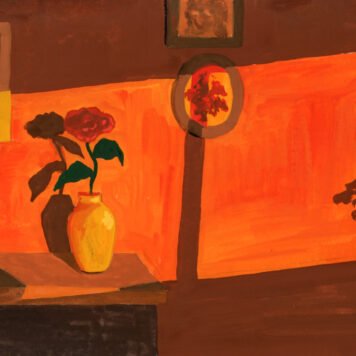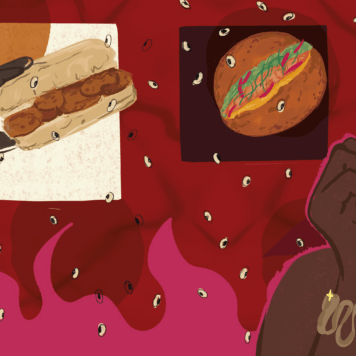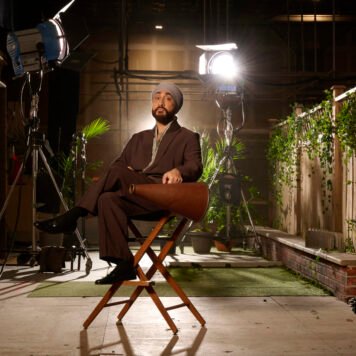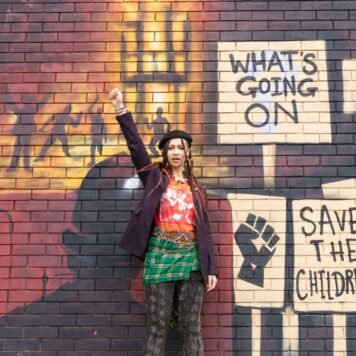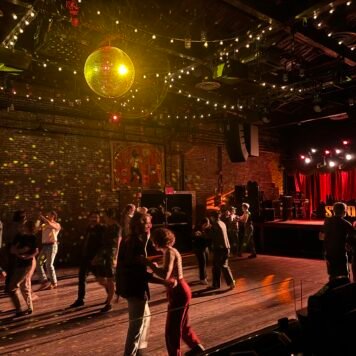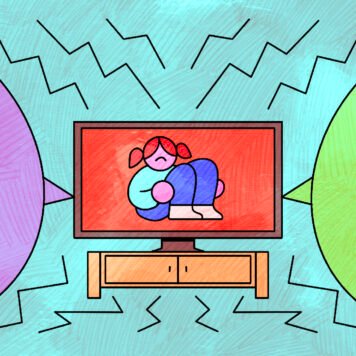In February 2020, shado hosted Build Love, Break Walls, a two-week residency in celebration of LGBT History Month. As part of the exhibition, we spotlighted 12 of London’s LGBTQI+ changemakers. shado’s Managing Editor Erin Cobby sat down with one of these changemakers, Zooey Gleaves, to find out more.
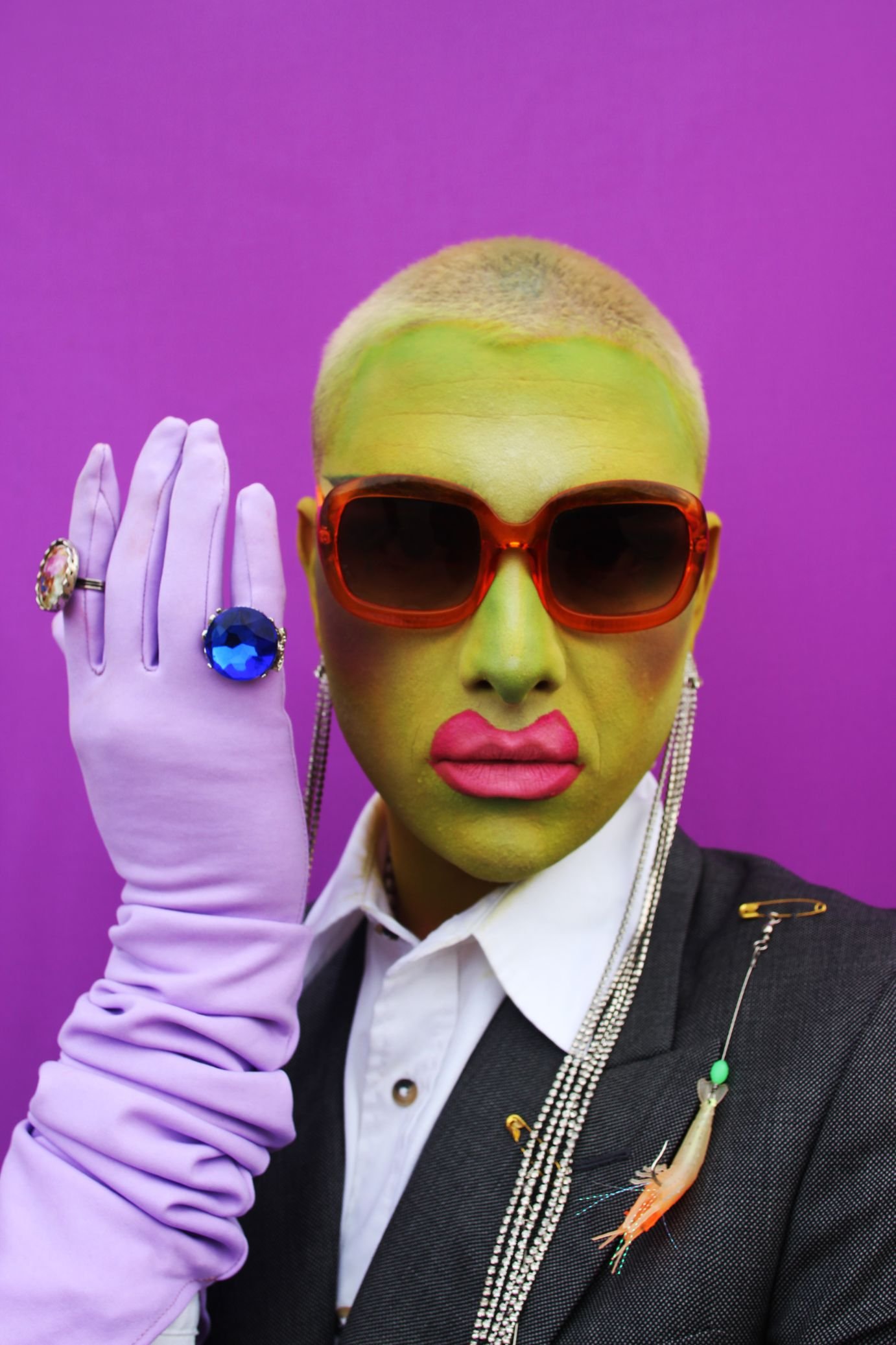
Jerry Springer, Virginia Graham and William Joyce all purportedly count themselves as part of the group who have been unkindly told they have the face for radio. Thankfully, criteria for different types of media is well on its way to blurring, and as figures like Julie Adenuga and Annie Mac have shown us, many mainstream DJs are beautiful on the inside and out. No one has ever embodied this truth more fiercely than DJ and drag star Zooey Gleaves, who proves, whether as himself or dressed up in the colour of the day as Lagoon Femshayma, that you don’t need to be in front of the camera to stand out from the crowd.
And it’s not just his look, often painted blue and 6ft 6 in heels, that makes him so distinctive. His voice, a smooth and refined South London accent, draws you in. His satisfying enunciation means that even when he’s reeling off names of stylists, models and fashion brands that are completely unbeknownst to me, I’m still hanging on his every word. When I ask him if this is a practiced art he laughs, saying: “You know, I’ve pretty much been insulted about every other part of my anatomy, but I’ve always had compliments on my eyes and my voice.” While school may not have always been easy for Zooey he says that by the time he reached sixth form he had figured it all out and “felt like fucking Regina George”. He explains that his voice helped him to make this powerplay and it wasn’t just complimented, but rather requested. “We used to have these drunken sleepovers when we were sixteen and it would always get to the point in the night where they’d be like: ‘Zooey tell a story’, and it would be some lesbian love triangle and a body with famaldahide in the basement of a ranch in Texas, weird stuff like that. All the guys got boners, it wasn’t the intention, but it was just what happened.”
Now at 25, Zooey has retained his storytelling gift but managed to widen his audience and sophisticate his engagement radar. As ¼ of in-demand collective Prestige Pak, (another quarter of which is Cesca Ivaldi who I also recently interviewed) and the host of two more radio shows, Queer Island Discs and Dragtastique, his voice is well on its way to becoming prolific. He runs me through what each of the different shows offer him in terms of creative expression. Instead of forging a singular vision, Zooey explains that Prestige Pak allows him exploration, as it’s really “just four friends playing to each other”. He further explains that “unlike other collectives, we bring almost polarised tastes into one vehicle, be it the show or be it a party. We take what we do seriously, [bridging cultural gaps in party spaces], but we try not to take ourselves too seriously.”
Queer Island Discs also has this element of camaraderie and allows Zooey, who has always wanted a talk show, to “talk to people I feel are really interesting and ask them questions in a way that would be weird if we were just at a party, so it’s very self-serving in a way.” Comparatively, Dragtastique is Zooey’s only solo show, a space where he highlights different queer musicians, producers and creatives: “It’s the show I’m always most nervous for,” he explains, “as it’s music focused I can’t rely on myself talking and I really feel the scrutiny of that.”
Despite the logistical lockdown complexities, Zooey has managed to keep two out of three of these radio shows going from his family home in East Dulwich, which he tells me is a decidedly wholesome lockdown. He describes Lordship Lane, a highstreet near where he lives, as taking on a whole new lease of life. “On an afternoon it’s like the opening of Beauty and the Beast, everyone’s holding baguettes under their arms in queues and having a great time”. Whilst Zooey has now got used to creating this way and is very thankful for the consistent work on the horizon, he explains that it took some acclimatising to. “I was actually quite bitter about it at the beginning. Part of my brain wanted to shut down and not do anything. When I was asked to do stuff I was like, ‘I can’t beleive I’m being fucking asked to do this’, because I’m an ego maniac, and then I kind of slapped myself and said actually this is really great”.
Despite the ability to collaborate online, Zooey is pining for personal connection. “I miss going out clubbing and turning a look and snogging boys and breathing in secondhand smoke. I miss shitty tap diet coke and chatting shit with people!” he explains, and goes on to describe why he’s always going to be biased to the London party scene. “It feels like a Women’s Institute meeting where we all get together and have a gossip about who’s a fucker and who’s dating who,” he says, before remarking more seriously that despite the closure of nightclubs, different communities have banded together to keep the scene alive. “Nightlife is inseparable from community, and that’s what I miss, seeing people I won’t see while walking down Lordship Lane.”
One person that Zooey seems to be missing is Lagoon Femshaya herself. While he states it’s quite nice to spend time as boy Zooey, “especially as there’s so much femme phobia in the gay community”, it’s been a hard separation.
“The thing about drag is”, he tells me, “it’s like Pringles, once you pop you can’t stop”.

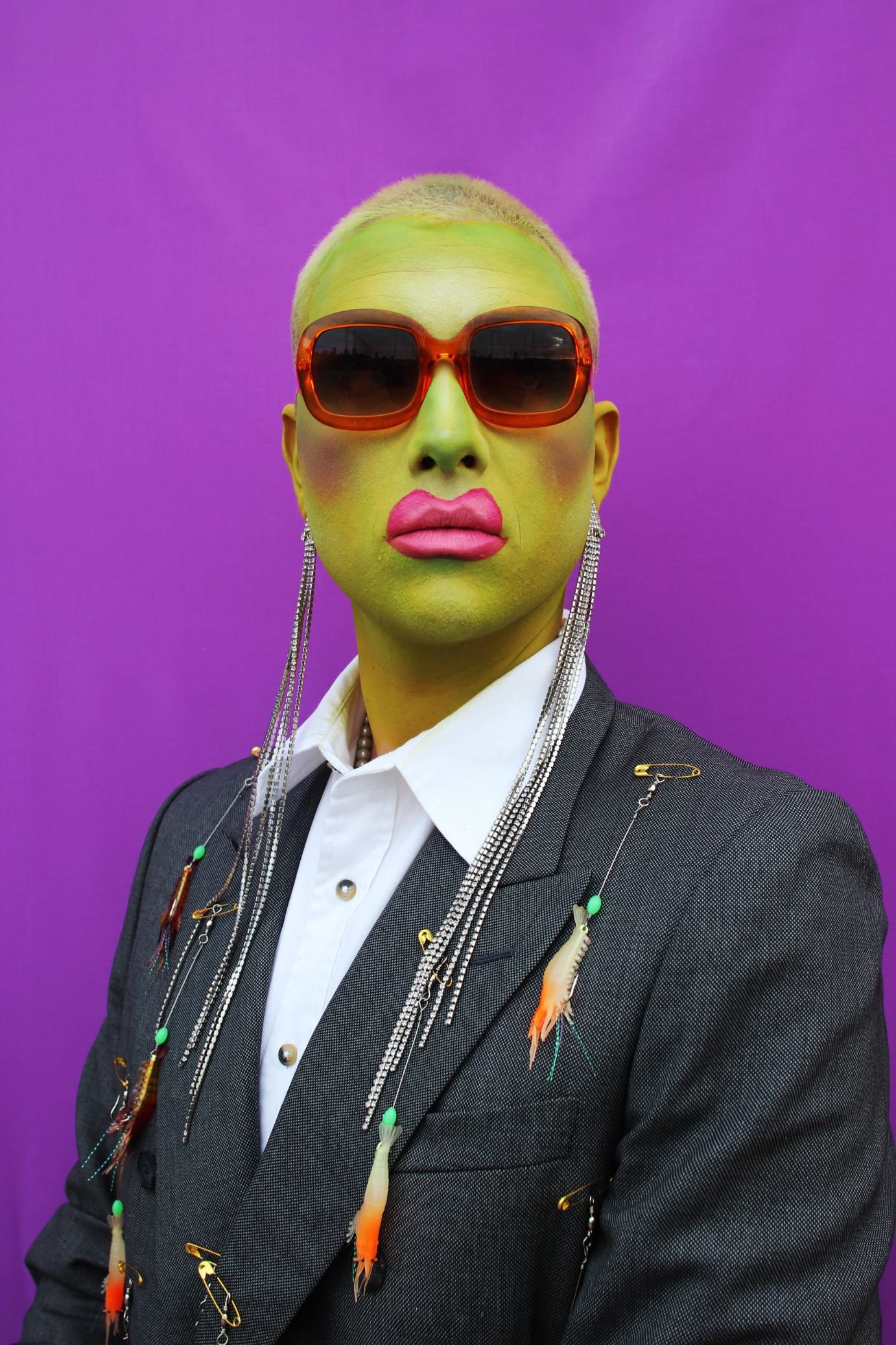
Zooey further explains that drag is the main way that he expresses himself. “If I was a painter I would paint. That’s how I get my point of view across about how I see the world and if I stopped doing that completely then it would be miserable for me.”
Apart from self-expression, drag also allows Zooey important time to self-reflect. “I’ve got such a scatty brain, I’m always thinking about a million different things, and quite a worrisome mind at times, and because you literally have to concentrate on painting your face and beautifying yourself, it takes a lot of concentration and that’s why it’s so meditative.” Therefore, the two hours it takes him to transform, “from booking the uber, getting the accesorries and taking some murray mints from the jar to put in my purse because I’m a fucking freak, an old woman at 25”, is time Zooey takes for himself. This was shown beautifully in a video Zooey created for Show Stoppers, which featured him getting ready in a makeshift bedroom while lip syncing Shirley Bassey and squeezing satsumas all over himself.
I ask him whether his choice to avoid natural skin colours is just another way in which he uses drag to sidestep common binaries. He explains that this choice was more due to personal preference than an overt political statement. “For me it was always about creating something surreal and otherworldly, as much like a computer game as possible. I never wanted to be a white girl, just being a Becky never really interested me. If I wanted to be a Becky I was going to be a blue Becky or a red Becky, never a white Becky.”
This otherworldliness is precisely what draws Zooey to drag, the attractiveness lies in the fantasy. “Drag is like theatre in that it’s temporary, no one is in drag forever. It’s fleeting from the moment it starts. It’s a depreciating asset so that exposes its fallacy just as much as it exposes its power. Zooey then lays down a truth that sticks with me longer than his looks or even his irresistible cadence. “At the end of it it’s all about self-determination and exposing the systems and structures that we identify and experience the world with. Be them gender, beauty or style they’re all completely rehearsed and totally skeletal and flimsy.”
“Drag exposes that everything moves, that everything is constantly up for examination. If someone can transform from one thing into another it means that anybody can and that actually the entire process is bogus, anybody can be anything and that’s fine.”
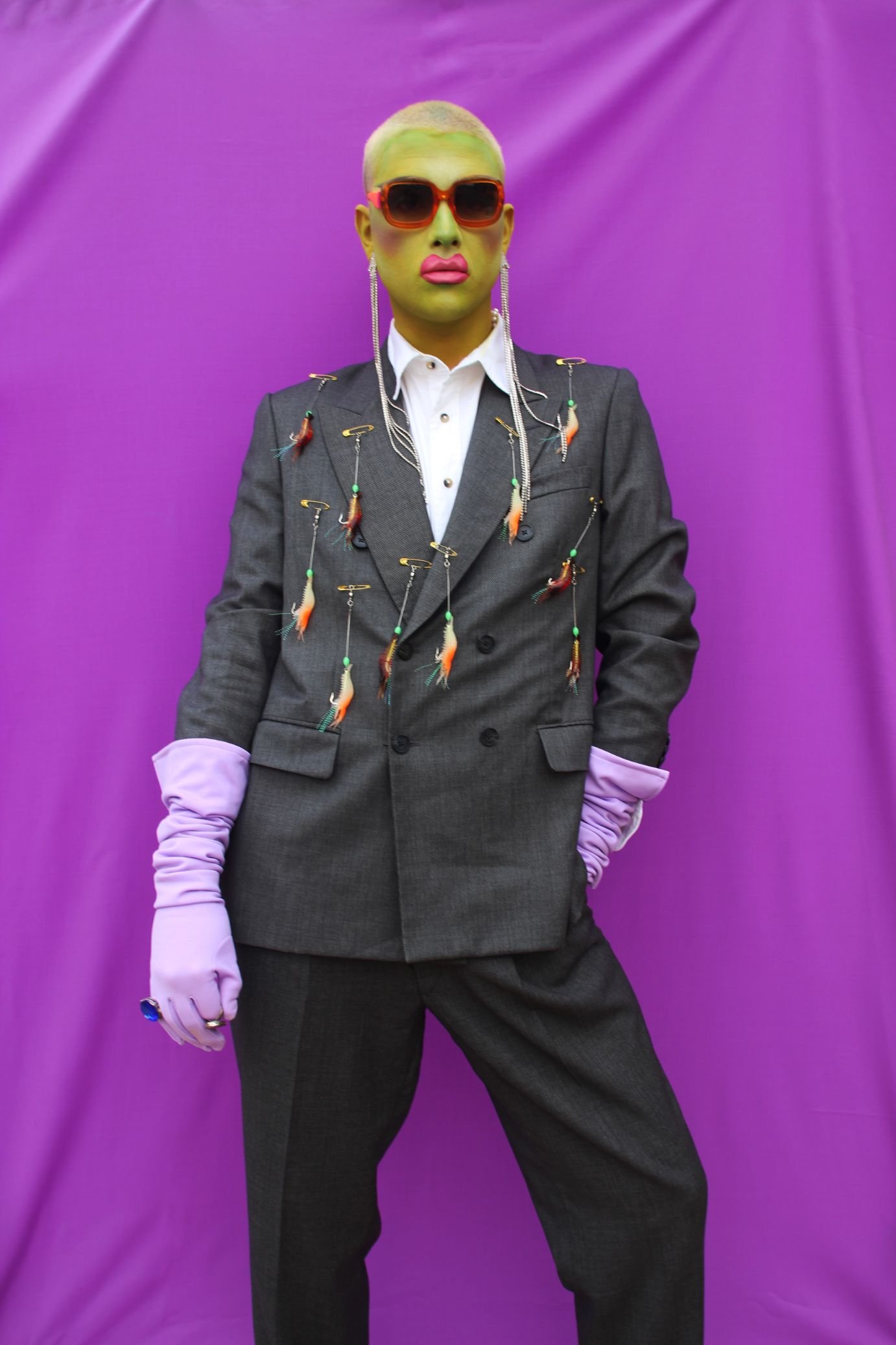
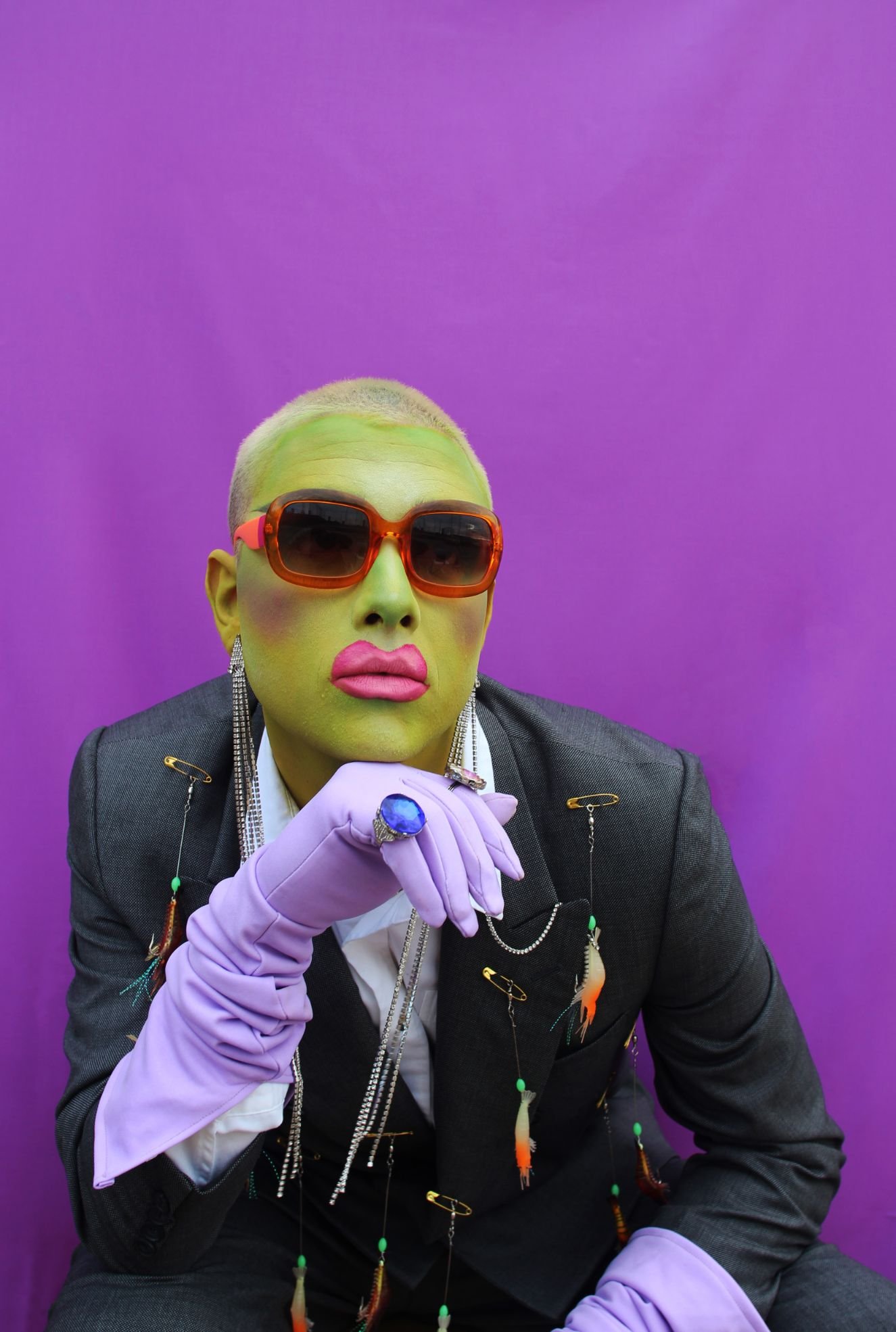

Photography by Bernice Mulenga @burneece
Follow Zooey @lagoon_femshayma


